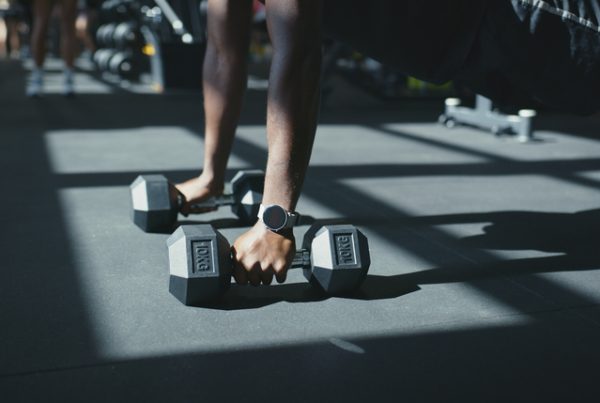ukactive has called for a radical rethink of health incentivisation in the workplace, including expanding the Cycle to Work scheme to cover gym memberships and equipment as more people work from home, in a new report published today (8 June).
A study conducted by the ukactive Research Institute, informed by Sport England and business organisations including the Federation for Small Businesses (FSB), examined the state of physical activity in the workplace for small to medium enterprises (SMEs) following the Covid-19 pandemic.
However, while SMEs account for 99.9% of UK businesses, they have less access to, or means to provide, opportunities for physical activity, and the majority of research around workplace physical activity centres on solutions for large corporate-based organisations.
The Active Workforce, which is the first report of its kind, focuses on the role that businesses, the fitness and leisure sector, business umbrella groups, the Government and the health sector can play in supporting employees of SMEs to be more active during work hours.
It comes at a pivotal point in the UK’s recovery from the pandemic, with a recent study from Bupa showing that a fifth of people now working from home are exercising less than pre-pandemic.
The Active Workforce report shows:
- 4% of SMEs surveyed do not yet provide opportunities for employees to be active during working hours, and nearly one-third (32.4%) do not feel their organisation has the support it needs to do this.
- The most popular physical activity opportunities among SMEs include the Cycle to Work scheme (39.7%), and physical activity challenges and competitions (22.1%).
- Measures offered by fewer businesses are those that involve more cost, such as providing access to private leisure facilities through membership (7.4%) or providing fitness equipment for employees (10.3%).
- Increased home and hybrid working are seen as barriers to physical activity.
The Government says improving wellbeing, health life expectancy and productivity, and reducing health inequalities by 2030 are major objectives within its ‘Levelling Up’ agenda.
The report’s recommendations include tax reforms to extend the Cycle to Work scheme to cover home fitness equipment and gym memberships, which would encourage far wider uptake and, subsequently, improve employee wellbeing and productivity.
It also recommends that organisations in the fitness and leisure sector improve awareness among SMEs of existing services through targeted marketing, working with ukactive to showcase the sector’s offer. It encourages fitness providers to integrate physical activity into holistic wellbeing packages for businesses, as well as offering hybrid models of delivery.
Recommendations for employers:
- Give employees time to be active at work – for example, through flexible working or scheduled breaks between meetings to allow for movement.
- Role-model workplace physical activity from senior leaders alongside providing verbal and/or policy permission for employees to be active.
- Keep workplace physical activity simple and social, and implement ideas that are co-created with employees and that allow them to connect and socialise.
Recommendations for health organisations and business umbrella bodies:
- For ukactive, Sport England and business umbrella groups such as FSB to align strategically to build connections between the business community and the fitness and leisure sector to improve access to services for SMEs. This includes alignment on national public health messaging around workplace physical activity.
- For health sector bodies, including ukactive, to support existing data collection frameworks – like the CBI/Business for Health ‘Health Index’ – providing SMEs with access to best practice implementation and measurement of workplace physical activity programmes.
Huw Edwards, CEO of ukactive, said: “Now, more than ever, the wellbeing of our working-age population is paramount. Workspaces can have a huge impact on both our physical and mental health, so we need these to be spaces that allow us to thrive and remain healthy.
“As this report demonstrates, supporting the health of our workforce is a joint responsibility for those working in fitness and leisure, in businesses, and in government.
“If the Government is serious about doing more to look after the workforce, drive productivity, and reduce health inequalities, it must make radical changes to how we support and incentivise physical activity.
“By simply extending the Cycle to Work scheme to include other health-related products such as gym memberships and fitness equipment we could turbocharge our nation’s workforce. To build back better, we have to build back fitter.”
Martin McTague, National Chair of the Federation of Small Businesses (FSB), said: “Small employers intuitively understand the connection between a healthy and thriving workforce and the future success of their business, and are keen to do everything they can to promote schemes which help staff increase their activity levels and so improve their health.
“The Government has a vital role to play as well, through expanding programmes such as the Cycle to Work scheme so that they are more inclusive, and available to more people.
“This report is a welcome insight, particularly at a time when hybrid and flexible working has become a greater factor for many.”
Jordan Cummins, Health Director at CBI, said: “Businesses across the UK are facing multiple headwinds at the moment, and so remaining competitive requires a laser light focus on the employee value proposition, including a progressive suite of health and wellbeing provision.
“The CBI welcomes any steps employers or policymakers are able to take to encourage wider provision and increase personal activity to build a healthier nation.”
To read or download The Active Workforce report click here.




